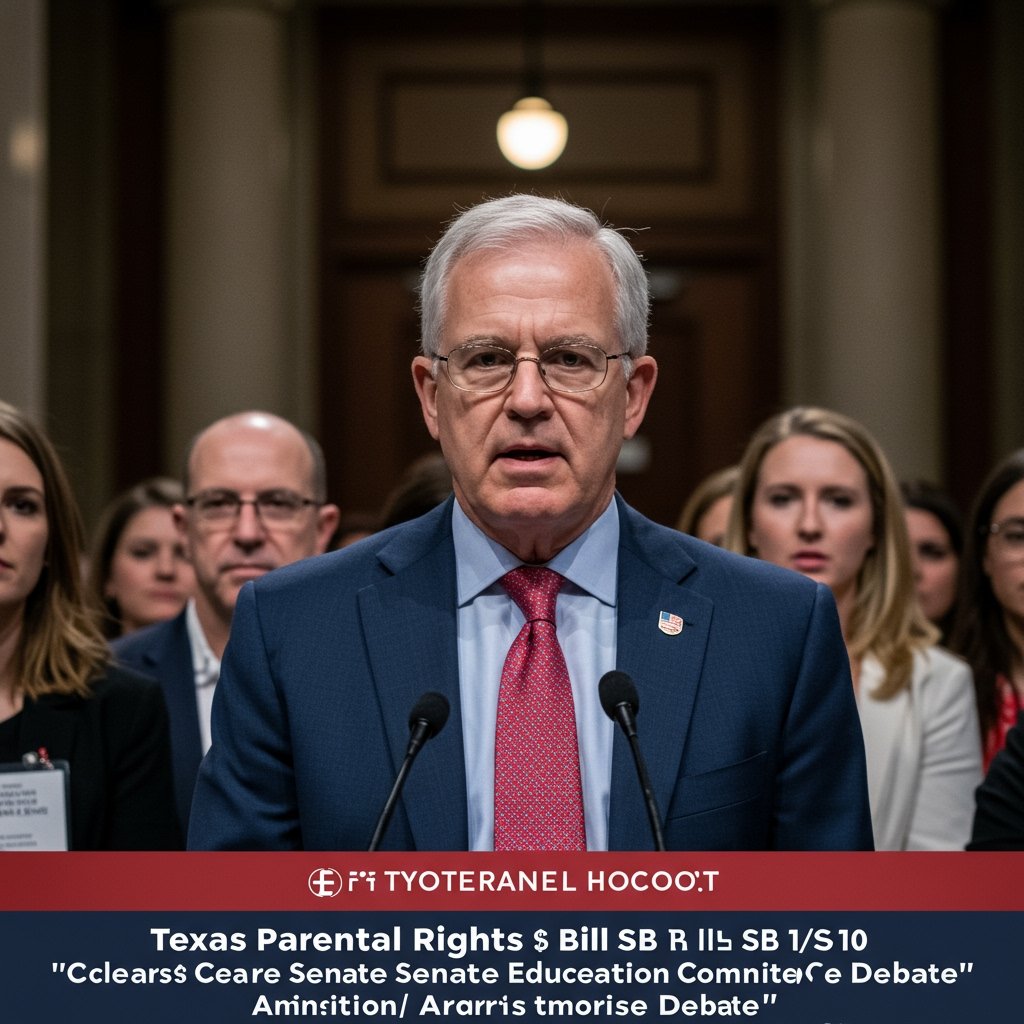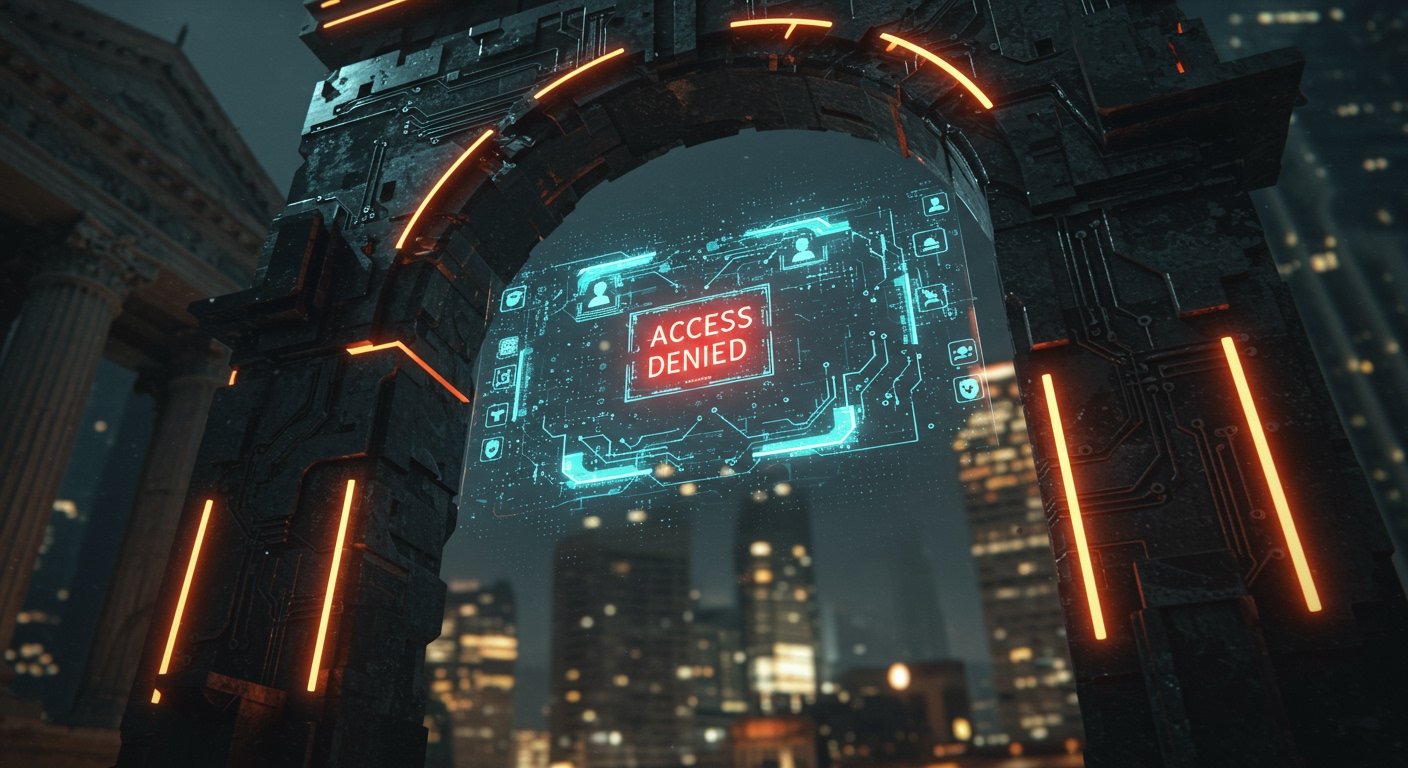Texas Parental Rights Bill SB 10 Advances From Committee
Austin, TX – A significant piece of legislation aiming to reshape the relationship between parents and public schools in Texas has taken a crucial step forward. State Senator Jane Smith’s controversial bill, SB 10, focused on parental rights in education, successfully passed the Senate Education Committee today. The bill, officially titled the Parental Rights in Education Act, cleared the committee with a vote of 8-5, signaling strong, albeit divided, support within the legislative body at the State Capitol in Austin.
SB 10 addresses two primary areas of contention in Texas public schools: curriculum review and library content challenges. The proposed legislation mandates that school districts statewide must provide parents with complete and transparent access to all instructional materials used in classrooms. This provision seeks to empower parents by ensuring they are fully aware of the educational content their children are exposed to. Beyond curriculum transparency, the bill also establishes explicit, streamlined processes for parents to formally challenge and seek the removal of books and other library materials deemed “inappropriate” from school libraries.
Bill Details and Key Provisions
The core tenets of SB 10 revolve around enhancing parental oversight and influence within the public education system. Should the bill become law, it would require school districts to adopt policies guaranteeing parents the right to review lists of instructional materials, textbooks, and supplementary resources used for their child’s classes. Districts would need to make these materials easily accessible, potentially through online portals or physical inspection by appointment.
The library content challenge process outlined in SB 10 is particularly noteworthy. It aims to standardize and potentially expedite the procedure for parents to contest library holdings. While most districts already have challenge policies, SB 10 could impose stricter timelines or requirements for review committees and potential removal, placing significant weight on individual parental objections regarding materials they find sexually explicit, age-inappropriate, or otherwise objectionable based on their family values.
Senator Smith and proponents argue that these measures are necessary to ensure parental rights are paramount in a child’s education. They contend that parents, as the primary stakeholders, should have the final say in what content is accessible to their children in schools and libraries.
Committee Vote and Atmosphere
The 8-5 vote in the Senate Education Committee reflects the deeply partisan and often emotional nature of the debate surrounding parental rights in education. The committee hearing saw hours of testimony from parents, educators, librarians, and advocacy groups, highlighting the wide chasm between those who view the bill as a protective measure for children and parental autonomy and those who see it as government overreach and a threat to educational freedom and professional judgment.
The State Capitol hearing room was filled with constituents and lobbyists representing diverse interests. Supporters wore unifying colors and carried signs advocating for parental control, while opponents voiced concerns about potential book bans and the impact on teachers and librarians. The vote breakdown largely followed party lines, typical of contentious legislation in the current political climate, underscoring the bill’s status as a priority for many conservative lawmakers and parent advocacy groups.
Arguments For SB 10
Advocates for SB 10, such as the powerful grassroots organization Texans for Parental Freedom, celebrated the committee’s decision. They argue that the bill is not just about removing books, but about fundamental transparency and empowering families. According to their representatives, many parents feel left out of the decision-making process regarding curriculum content and library acquisitions. SB 10, they contend, provides essential legal teeth to existing parental rights, ensuring schools are responsive to parental concerns and that curricula align with community standards and values.
Supporters often cite specific instances where they found educational materials or library books they deemed offensive or inappropriate for minors. They believe SB 10 offers a necessary mechanism to address these issues uniformly across the state and prevent what they describe as ideologically driven content being introduced without parental knowledge or consent. The bill is framed as a way to restore trust between parents and the public school system.
Concerns Against SB 10
Conversely, opponents of SB 10 expressed strong disappointment following the committee vote. Groups like the Texas State Teachers Association (TSTA) and the ACLU of Texas have been vocal in their opposition. They warn that while the stated intent is parental rights, the practical effect of SB 10 could be widespread censorship that harms student access to information and diverse perspectives.
The TSTA argues that the bill could undermine the professional judgment of educators and librarians who are trained to select age-appropriate and educationally valuable materials. They express concern that overly broad or easily triggered challenge processes could lead to the removal of classic literature, informational texts, or books reflecting diverse experiences, out of fear of potential challenges, lawsuits, or penalties.
The ACLU of Texas highlights concerns about the bill’s potential impact on local school district autonomy. They argue that state-mandated processes could override decisions made at the local level by elected school boards and appointed administrators who are often better equipped to understand the specific needs and values of their communities. Furthermore, opponents worry that the focus on challenging materials could create a chilling effect in classrooms and libraries, making educators hesitant to explore complex topics or stock a wide range of resources for students.
They contend that existing processes are sufficient and that SB 10 could lead to a chaotic and inconsistent educational environment across Texas, where access to information depends heavily on individual parental objections rather than professional curation and educational standards.
Next Steps
With the committee hurdle cleared, SB 10 now advances to the full Texas Senate for consideration. The bill must be debated and passed by the full Senate body before it can move to the House of Representatives. Given the intense debate surrounding the bill thus far, its consideration on the Senate floor is expected to be a potentially contentious floor debate, with lawmakers likely to offer amendments and engage in lengthy discussions about the scope and implications of enhanced parental rights and the challenges it poses to existing educational structures and practices.
The path forward for SB 10 is far from certain, but its passage out of committee underscores the significant momentum behind the parental rights movement in Texas and sets the stage for a major legislative showdown over the future of public education in the state.





